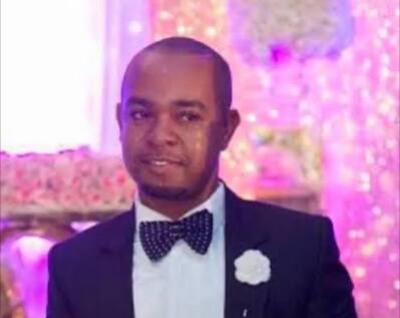Dar es Salaam — November 2025. Tanzania has entered one of the darkest chapters of its political history following the October 29 general elections. President Samia Suluhu Hassan’s landslide victory, officially recorded at more than 97 percent has been met with disbelief, violence and fear.
Protests have swept across the country amid reports of thousands killed and thousand others detained. Opposition groups claim the vote was neither free nor fair, describing it as a “civilian coup.” At the center of the storm is the president’s son, Abdul Halim Hafidh Ameir, a man critics say wields immense and unofficial power within the state’s security apparatus.
Though holding no official title, Abdul has become one of Tanzania’s most controversial figures. Intelligence analysts and diplomatic sources cited by foreign media allege that he exerts strong influence over the Tanzania Intelligence and Security Service (TISS) — the country’s secretive intelligence agency.
The Tanzanian government has not confirmed or denied these reports and Abdul himself has remained silent. But inside Dar es Salaam, his name carries a weight that few dare speak openly about.
“It’s not what’s written on paper that matters anymore,” said a former security officer now in exile. “Everyone knows where orders come from.”
Election and Aftermath
The 2025 polls were intended to reaffirm Tanzania’s democratic trajectory. Instead, they deepened mistrust. International observers from the European Union and African Union were restricted in their monitoring roles. The EU Election Observation Mission described a climate of “intimidation and limited transparency.”
By the second day after results were announced, demonstrations had broken out in major cities. Opposition party CHADEMA claims more than 700 people were killed by security forces — a figure impossible to verify due to an internet blackout and blocked media access.
Amnesty International reported “a surge in arbitrary arrests and excessive use of force,” calling the government’s response “grossly disproportionate.” The government insists it acted to restore public order, but rights organizations paint a different picture.
Disappearances and Detentions
Multiple human rights groups, including Human Rights Watch and Amnesty International have documented cases of enforced disappearances since early October. Journalists, activists, and opposition supporters have vanished after being taken by unidentified operatives believed to be linked to TISS.
A confidential Human Rights Watch brief mentions “unregistered facilities” where detainees are held without charge or trial. One ex-detainee told researchers that interrogations often involved torture.
A senior Amnesty researcher said: “The evidence points to a coordinated pattern of intimidation, not random acts of violence.”
Among those missing is Jonas Mbwana, a journalist who investigated government contracts allegedly tied to companies associated with Abdul. He disappeared on October 31 after leaving his newsroom. Police deny any involvement.
Expanding Surveillance
Analysts describe an expanding surveillance state under President Samia’s rule. Sources told Africa Confidential that TISS has invested heavily in digital monitoring tools capable of tracking social media and telecommunications activity.
“It’s not only about physical repression anymore,” said a Nairobi-based security expert. “They have built a parallel digital infrastructure that allows them to trace critics in real time.”
Opposition members claim this system is coordinated by Abdul’s network within the intelligence community — a claim the government has repeatedly dismissed.
International Concern
The United Nations High Commissioner for Human Rights (UNHCHR) has expressed “grave concern” about “widespread arbitrary detentions and excessive use of force.” The U.S. State Department called for “an independent and transparent investigation” into the killings while the European Union has hinted at targeted sanctions if abuses continue.
Neighboring Kenya and Zambia have reported rising numbers of Tanzanian refugees seeking asylum, citing political persecution.
A senior East African diplomat told BBC Africa Eye: “If the allegations of systematic repression are verified, Tanzania risks international isolation similar to Zimbabwe in the early 2000s.”
Fear on the Streets
Within Tanzania, fear has become part of daily life. Independent radio stations have been warned against broadcasting “inflammatory content.” At least nine journalists remain missing, according to the Committee to Protect Journalists (CPJ).
In Dar es Salaam, a lecturer who requested anonymity said, “You can’t even mention Abdul’s name in public. People whisper it as if it’s a curse.”
Residents describe security checkpoints, plainclothes operatives and night-time raids in neighborhoods suspected of harboring protesters. Human rights groups say dozens of activists are held incommunicado.
Legal experts believe the situation could attract the attention of the International Criminal Court (ICC) if evidence supports claims of systematic killings. Human rights lawyers have urged the UN Human Rights Council to appoint a special rapporteur on Tanzania — a mechanism used in crises such as Ethiopia’s Tigray war.
So far, the Tanzanian government has dismissed the reports as “foreign propaganda.” A statement from the Ministry of Information said: “Tanzania remains a peaceful and democratic nation. Any suggestion of widespread abuses is unfounded and politically motivated.”
Yet few inside or outside the country are convinced.
Uncertain Future
Tanzania’s political landscape has changed dramatically since President Samia took office in 2021, succeeding the late John Magufuli. While she initially promised reform, critics say her second term has cemented a new form of centralized control.
Whether Abdul Halim Hafidh Ameir is the architect of that control or merely its symbol, his rise reflects a broader transformation of Tanzania’s power structure — one where loyalty overrides law and silence replaces dissent.
For now, the streets of Dar es Salaam remain tense. Soldiers patrol junctions. The internet flickers on and off. And in the quiet, ordinary Tanzanians whisper a question few dare to answer aloud, Who is really running their republic ? majirani
Related posts:
- Is UPDF Supplying Deadly Flammable Chemical Compound Used In South Sudan’s Nasir War Theater ?
- Kenya’s Ex DP Gachagua Formally Quits Ruling Party UDA, Brands Ruto’s Regime a ‘National Scam’
- QUEEN OF QUIET TERROR ? Inside President Samia Suluhu’s Shadow Force Striking Fear Across Tanzania Ahead of Elections
- Kenya’s Deputy Police Chief Lagat Bows to National Pressure and Steps Aside Over His Role In Albert Ojwang Murder

